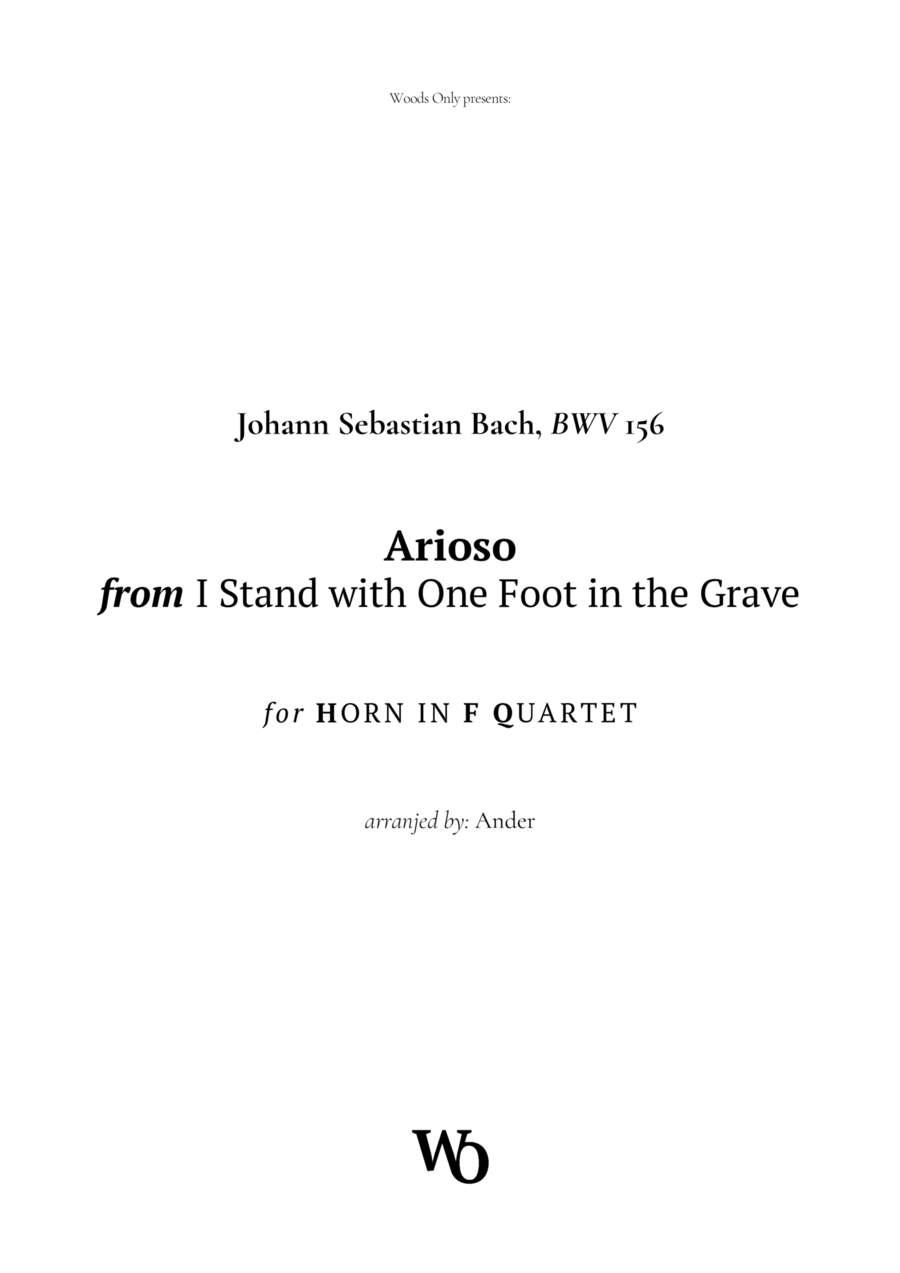Horn - Level 2 - Digital Download SKU: A0.1124441 Composed by Johann Sebastian Bach. Arranged by Ander. Baroque,Christmas,Easter,Sacred,Wedding. 7 pages. Woods Only, Arrangements #725187. Published by Woods Only, Arrangements (A0.1124441). This easy arrangement for horn in F quartet was adapted to be simple to perform and understand the structure of the original work for various levels of musical knowledge. It can be played freely by beginning students due to the ease imposed on the piece; however, this does not preclude it from being played by professionals and music teachers. It is also ideal for academic recitals, weddings, student method and ceremonies that are arranged in the same way as the piece contains. The Cantata 156 (BWV 156) was written for the third Sunday after Epiphany in 1729, and was first performed on January 23 of that year. The text is by Picander, one of Bach's favorite librettists. of the four cantatas written by Bach for the feast, it was the last and only one scored for solo voice. This is a choral cantata, employing a choral melody in several movements. Cantata 156, in fact, employs two different choral melodies and texts in the second and sixth movements. A cantata is a sung symphony consisting of several parts, one of which is the Arioso, which is the initial instrumental part.
